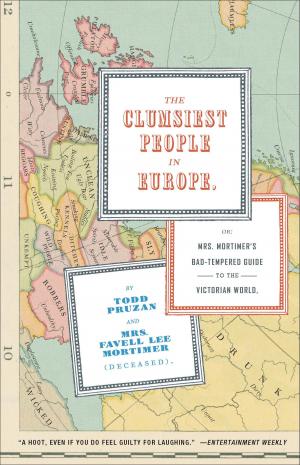Rethinking the Weimar Republic
Authority and Authoritarianism, 1916-1936
Nonfiction, History, Germany, European General| Author: | Anthony McElligott | ISBN: | 9781849660273 |
| Publisher: | Bloomsbury Publishing | Publication: | December 19, 2013 |
| Imprint: | Bloomsbury Academic | Language: | English |
| Author: | Anthony McElligott |
| ISBN: | 9781849660273 |
| Publisher: | Bloomsbury Publishing |
| Publication: | December 19, 2013 |
| Imprint: | Bloomsbury Academic |
| Language: | English |
"McElligott's impressive mastery of an enormous body of research guides him on a distinctive path through the dense thickets of Weimar historiography to a provocative new interpretation of the nature of authority in Germany's first democracy.†? Sir Ian Kershaw, Emeritus Professor of Modern History at the University of Sheffield, UK
This study challenges conventional approaches to the history of the Weimar Republic by stretching its chronological-political parameters from 1916 to 1936, arguing that neither 1918 nor 1933 constituted distinctive breaks in early 20th-century German history.
This book:
- Covers all of the key debates such as inheritance of the past, the nature of authority and culture
- Rethinks topics of traditional concern such as the economy, Article 48, the Nazi vote and political violence
- Discusses hitherto neglected areas, such as provincial life and politics, the role of law and Republican cultural politics
"McElligott's impressive mastery of an enormous body of research guides him on a distinctive path through the dense thickets of Weimar historiography to a provocative new interpretation of the nature of authority in Germany's first democracy.†? Sir Ian Kershaw, Emeritus Professor of Modern History at the University of Sheffield, UK
This study challenges conventional approaches to the history of the Weimar Republic by stretching its chronological-political parameters from 1916 to 1936, arguing that neither 1918 nor 1933 constituted distinctive breaks in early 20th-century German history.
This book:
- Covers all of the key debates such as inheritance of the past, the nature of authority and culture
- Rethinks topics of traditional concern such as the economy, Article 48, the Nazi vote and political violence
- Discusses hitherto neglected areas, such as provincial life and politics, the role of law and Republican cultural politics















